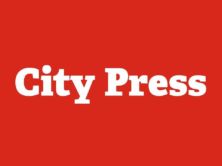(Credit: Reporters without Borders, screenshot)
Nonprofit advocacy group Reporters without Borders released its latest Press Freedom Index on Jan. 25.
This is the “10th annual” report in full. According to Reporters without Borders, “crackdown was the word of the year in 2011” as “numerous” journalists have been censored and attacked.
According to the report, “Syria, Bahrain and Yemen get worst ever rankings.”
Reporters without Borders’s announcement on the index noted that Syria, Iran, China, Bahrain, Vietnam, Uganda and Belarus have all “become much more repressive.” According to the report, “it was Africa that also saw the biggest falls in the index,” citing Djibouti, Uganda and Cote D’Ivoire.
Some of the bigger moves include:
- Tunisia “rose 30 places in index” to greater press freedom
- Bahrain “fell 29 places”
- Egypt also “fell 39 places”
- Chile “fell 47 places because of its many freedom of information violations”
- Djibouti “fell 49 places to 159th”
- Malawi “fell 67 places because of the totalitarian tendencies of its president.”
- Brazil “plunged 41 places to 99th because the high level of violence resulted in the deaths of three journalists and bloggers.”
- The United States fell from 20 to 47 because of “the many arrests of journalist [sic] covering Occupy Wall Street protests.”
Criticism of the Index
The New York Times’ Andrew Rosenthal argued that Reporters without Borders’ list “sometimes ends up with a pecking-order that doesn’t quite mesh with reality.”
For example, Rosenthal questioned the decision to move the United States down 27 spots because of Occupy Wall Street arrests, especially in comparison with countries like Hungary, which is 40th. “27 places? That seems arbitrary. What is that, one spot for each arrest?” he wrote.
“For the 2010 list released in 2011, Reporters Without Borders placed the U.S. at 20, and Hungary at 23. Then a bunch of American cops harassed journalists at Occupy protests, and the Hungarian government tried to do away with the very principle of an independent press. Surely what happened in Hungary is worse than what happened here. Surely this is a more hospitable country for journalists. And yet, going by the Press Freedom Index, it isn’t.”
We asked Reporters without Borders’ Delphine Halgand if the group had any comment about this criticism. Halgand told iMediaEthics that while the United States’ decline in the index is “mostly” related to Occupy Wall Street-related actions and charges, other issues like a lack of federal shield law, “access to information,” and “the prosecution of whistleblowers” contributed to the country’s decline in the ranking.
Of Occupy Wall Street arrests, Halgand said “It’s not the only reason, even if it’s the biggest reason for the decline.”
Halgand noted that Reporters without Borders wants the annual rankings to be a “wake-up call…It’s just a way to remember every year how the situation has evolved during the last year.” She also suggested the public contextualize and look how individual countries move in the ranking from year to year.
Halgand also sent iMediaEthics Reporters without Borders’ report on “how the index is compiled.” Countries are ranked after each county is scored in a questionairre with “44 main criteria” about the country’s “press freedom violations” between Dec. 1, 2010 and Nov. 30, 2011.
Among other areas, the questionaire “asks questions about every kind of violation affecting journalists and netizens (including murders, imprisonment, physical attacks and threats) and news media (censorship, confiscation of newspaper issues, searches and harassment). And it establishes the degree of impunity enjoyed by those responsible for press freedom violations. It also measures the level of self-censorship in each country and the ability of the media to investigate and criticize. Financial pressure, which is increasingly common, is also incorporated into the final score.”





Comments Terms and Conditions